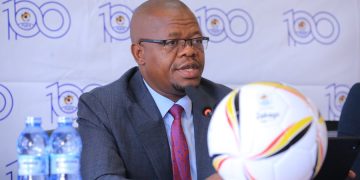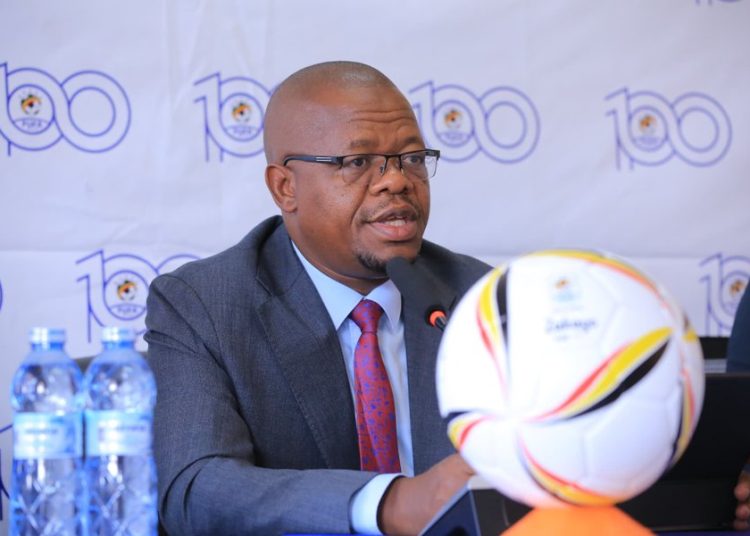Vipers Sports Club’s bombshell announcement that it will not participate in the Uganda Premier League under the new format has shaken the foundations of Ugandan football.
While some might view the boycott as drastic, a closer look at the sequence of events reveals a club pushed into a corner by a federation that appears more interested in flexing authority than fostering consensus.
On October 2, 2025, Vipers president Dr. Lawrence Mulindwa formally notified FUFA and the Uganda Premier League Secretariat of the club’s withdrawal. The decision takes effect immediately, starting with the Venoms’ high-profile fixture against Kitara FC at Namboole on October 4.
This dramatic move follows months of frustration. Vipers insist that FUFA ignored multiple letters (dated August 23, September 23, and September 29) as well as concerns raised during meetings.
Instead of engagement, the club alleges it was met with “ridicule, blackmail, and ostracization through mainstream and social media.”
Such a response from a federation that claims to be professional and inclusive raises fundamental questions about FUFA’s commitment to dialogue.
FUFA throws clubs into chaos
At the heart of the dispute is FUFA’s decision to introduce a restructured league format without adequate consultation or consideration of club realities. While reform can be positive, process matters.
A governing body that bulldozes reforms without genuine input from stakeholders risks alienating the very clubs that sustain the competition.
Vipers argue the changes are “not timely and appropriate,” warning that the rushed rollout poses “an existential threat” to their club’s stability. This is not mere alarmism.
Privately-owned clubs like Vipers shoulder enormous financial burdens; player wages, infrastructure, match-day operations, sponsorship obligations, and sudden format changes can disrupt planning, investment, and sustainability.
By ignoring these realities, FUFA displays either a lack of understanding or a willful disregard for the operational challenges clubs face.
Disrespect to clubs
Vipers’ protest also shines a light on a deeper issue: FUFA’s dismissive attitude toward privately owned clubs.
Dr. Mulindwa’s statement underlined this when he said, “We do not only find this unethical and disrespectful but also a total disregard of what we go through as a privately owned football club to raise football to the level we have done and still do.”
This is not rhetoric. Over the years, Vipers have invested heavily in talent development, infrastructure, and professional management, raising the bar in Ugandan football. Instead of being treated as a partner in progress, the club feels scapegoated and blackmailed for daring to voice dissent.
A governance problem at FUFA
The boycott is not simply about one club’s refusal to play. It exposes FUFA’s governance flaws.
A federation should be a neutral custodian of the game, fostering inclusivity, transparency, and fairness. Instead, FUFA has developed a reputation for unilateral decisions, heavy-handedness, and silencing dissenting voices.
For months, Vipers tried formal channels, letters, meetings, and dialogue. FUFA’s cold shoulder response, combined with ridicule in public spaces, suggests a federation more concerned with saving face than solving problems. This culture of arrogance is corrosive to the health of the game.
Escalating beyond football
By circulating its protest letter to the Minister of Education and Sports, the National Council for Sports, sponsors, and partners, Vipers is signaling that FUFA’s conduct has transcended football governance into political and legal arenas.
It is a call for oversight, an indictment of FUFA’s failure to respect stakeholders and manage the league in a transparent, inclusive manner.
If a leading club like Vipers feels so cornered that it must boycott, what hope is there for smaller, less financially secure clubs? The credibility of the entire league now hangs in the balance, with fans and sponsors equally unsettled.
A needed wake-up call
Whether one agrees with Vipers’ method or not, their message is clear: Ugandan football cannot be run through intimidation, unilateralism, and closed-door decisions.
FUFA must remember that without clubs, there is no league, and without dialogue, there can be no progress.
The boycott should serve as a wake-up call. Football governance is not about forcing reforms down the throats of stakeholders; it is about building consensus and respecting those who invest blood, sweat, and treasure into the game.
FUFA has much to answer for. Instead of celebrating a new season, Ugandan football is now engulfed in uncertainty. The federation can either continue on its authoritarian path, or finally admit that reform without consultation is no reform at all.





























